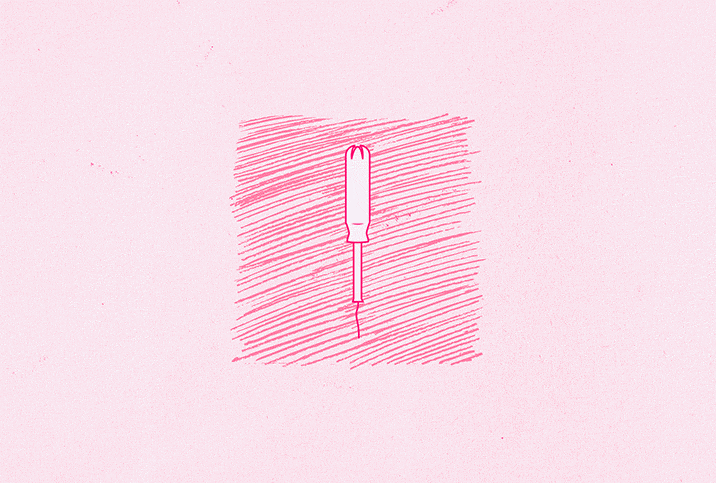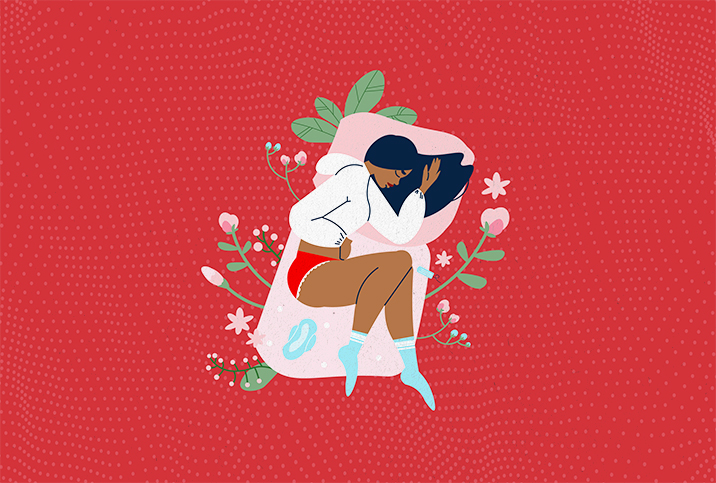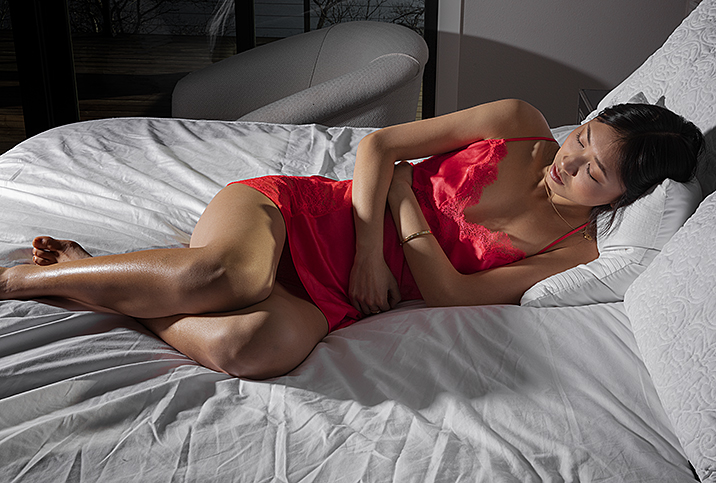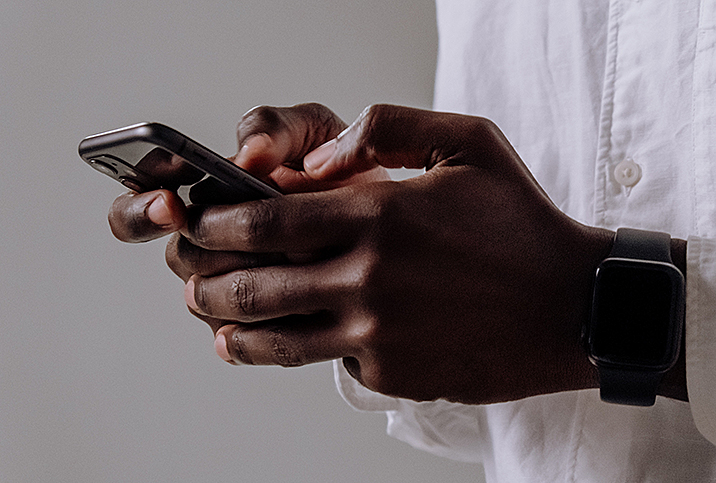My Anxiety Levels Rise During My Period—What Gives?

Michelle grew up with the idea that periods were gross, embarrassing and certainly not something you talk about.
"Popular culture has constant jokes about how 'crazy' women get before periods, how 'emotional' we are," she said.
It wasn't until her mid-30s that Michelle, a 37-year-old customer service manager in Pittsburgh who preferred not to give her last name, thought the ebb and flow of her crippling anxiety was just part of how broken she was.
At that time, several things fell into place. First, she realized her anxiety had regular patterns and she stopped worrying about admitting she did not feel her best when she experienced premenstrual syndrome (PMS). Next, she finally found a doctor who actually listened when she said she felt "crazy" only during that week.
"The last part makes me the most sad. I wish we didn't just assume that feeling fear and anxiety doesn't have to be something you 'just deal with,'" Michelle said. "As a mom to a little girl now, I want to make sure we talk openly about how we feel, how to celebrate our bodies and how we can make sure we are heard."
The cause of anxiety during PMS
"Many individuals feel an increase in anxiety in the weeks prior to the start of their period," said Oklahoma-based gynecologist Corey R. Babb, D.O. "This is due to a substantial drop in both estradiol and progesterone, two hormones that are very important for not only menstrual regulation, but also mood, cognition and overall well-being."
If you often find yourself more anxious just before or during your period, you're not alone. Although physical symptoms such as cramps, headaches and bloating often take precedence over psychological manifestations, anxiety is one of the main symptoms of premenstrual syndrome, according to a 2008 study.
Excessive worrying, tension or just a general sense of nervousness can be linked to PMS. Varying levels of hormones such as estrogen and progesterone during the luteal phase of menstruation are typically to blame.
Anxiety can lead to more complications
For some people, having too low a level of progesterone—a hormone in your blood that helps protect against feelings of stress—could be the cause of psychogenic nonepileptic seizures (PNES), according to a 2020 scientific review.
Seizures that worsen in relation to menstrual cycles are called "catamenial." Around 40 percent of women with epilepsy describe worse seizures in relation to their periods. The reason for the increased risk is hormone changes before, during and after menstrual cycles. However, the link between high estrogen levels and seizures remains ambiguous.
Other women experience a severe drop in hormones that lead to crippling anxiety, depression, withdrawal from social situations or even suicidal thoughts or attempts, Babb added.
The severity of symptoms is called premenstrual dysphoric disorder (PMDD). Treatment for PMDD includes antidepressants, birth control and/or over-the-counter pain relievers like ibuprofen or naproxen, according to the Office on Women's Health in the U.S. government. Stress management is also recommended, as is making healthy food changes.
Women must have five or more of the following symptoms of PMDD to be officially diagnosed:
- Lasting irritability or anger that may affect other people
- Feelings of sadness or despair, or even thoughts of suicide
- Feelings of tension or anxiety
- Panic attacks
- Mood swings or crying often
- Lack of interest in daily activities and relationships
- Trouble thinking or focusing
- Tiredness or low energy
- Food cravings or binge eating
- Trouble sleeping
- Feeling out of control
- Physical symptoms, such as cramps, bloating, breast tenderness, headaches and joint or muscle pain
Some women experience painful cramping, said Tina B. Tessina, Ph.D. (also known as the blogger Dr. Romance), a psychotherapist from Long Beach, California, and the author of "The 10 Smartest Decisions a Woman Can Make Before 40." She suggested using a heating pad or warm blanket—anything that makes you feel comfortable.
Tessina also noted that when the body is being flooded with hormones, worries about blood seepage and feeling slightly swollen can easily produce anxiety.
"Anxiety during a woman's menstrual period is common," she said. "Women's bodies change markedly during periods, and most women feel some discomfort during this time."
If you find yourself super-anxious during PMS, simple activities can really help. Be sure to get exercise and plenty of sleep, eat nutritious foods and consider relaxing activities such as yoga or a massage, or just simple breathing exercises.
Above all, always remember that you're not alone. Chances are many other women feel the same way you do each month. Don't be afraid to reach out and ask for help, because there are many options out there for therapy, both in person and online.


















